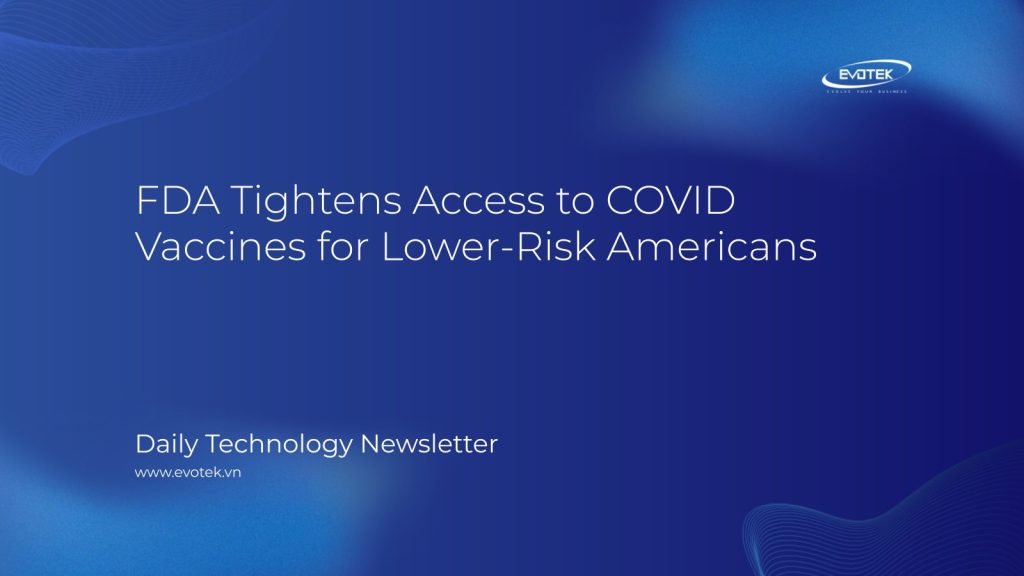Washington, D.C. – The Food and Drug Administration (FDA) is modifying its COVID-19 vaccine policy, raising concerns about access for Americans at lower risk of severe illness. The agency plans to focus its approval process on vaccines for adults 65 and older and individuals over six months with specific risk factors.
In a commentary published in the New England Journal of Medicine (NEJM), FDA officials stated their intention to prioritize vaccine approvals for high-risk individuals while demanding “robust, gold-standard data” for those at lower risk. This decision arrives amidst changes within the Department of Health and Human Services.
Critics argue this new approach may unduly restrict vaccine access. “This is overly restrictive and will deny many people who want to be vaccinated a vaccine,” Dr. Anna Durbin, Director of the Center for Immunization Research at Johns Hopkins University, told The New York Times.
Vaccine scientist Dr. Paul Offit echoed these concerns, telling The Associated Press, “The only thing that can come of this will make vaccines less insurable and less available.”
The FDA maintains that 100 to 200 million Americans will still have access to annual COVID vaccines. Last week, the agency approved the Novavax COVID-19 vaccine specifically for older adults and higher-risk individuals. In the NEJM article, the FDA questions the benefit of additional doses for healthy individuals, citing a lack of data.
However, previous CDC studies indicate that boosters can prevent mild to moderate COVID cases for up to six months, regardless of risk level. Vaccination can also reduce illness severity and the risk of long COVID, according to the CDC.
While COVID-19-associated hospitalizations occurred at a rate of 71.2 per 100,000 during the 2024-25 season, the FDA’s new directive raises concerns about access for healthy individuals who wish to protect vulnerable family members.
The FDA acknowledges low COVID booster uptake in the US, with less than 25% of people receiving the shot annually. They also expressed concern that this may affect “public trust in vaccination in general”.
Former FDA official Peter Marks, in his resignation letter, cited concerns about transparency and the spread of misinformation.
Key Takeaways:
- FDA prioritizing COVID-19 vaccine approvals for high-risk groups.
- Critics worry about restricted access for healthy individuals.
- Agency cites low booster uptake and need for more data.
Sources: New England Journal of Medicine, The New York Times, The Associated Press, Centers for Disease Control and Prevention

 日本語
日本語 한국어
한국어 Tiếng Việt
Tiếng Việt 简体中文
简体中文